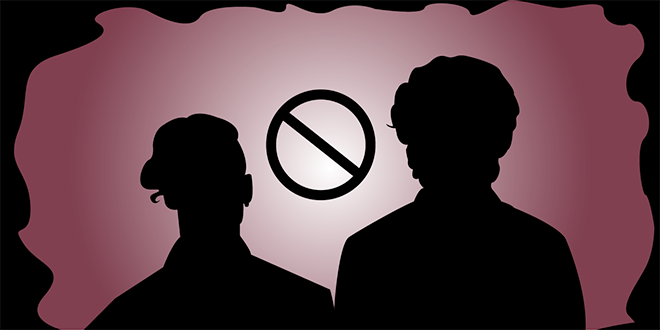When a Safe Space Is No Longer Safe: PWR BTTM, Consent, and Holding Artists Accountable

Design by Jenny Dodge
Content warning: sexual assault
Queer punk band PWR BTTM’s fast ascent to fame within the DIY and LGBTQIA+ communities has just as speedily turned into a sharp downfall. Known for providing queer youth with a much-needed safe and supportive space in which to escape an often queerphobic mainstream society, the band has become the subject of quickly developing and highly publicized sexual assault accusations. On May 11, just a day before the debut of their new album, Kitty Cordero-Kolin used Facebook to accuse Ben Hopkins of PWR BTTM, who uses gender neutral pronouns, of being a “known sexual predator, perpetrator of multiple assaults, etc.” The band issued a response on Facebook stating that the allegations “come as a surprise.” They also set up an email address, to be managed by a mediator, where survivors or those working with survivors could discuss the issue and bring forth allegations.
The next day, Jezebel published an interview with one of the individuals that accused Hopkins of assaulting her and refusing to wear protection. As a reaction to the accusations, Polyvinyl Records dropped PWR BTTM from their label, both Polyvinyl and their former label Father/Daughter refused to sell their new album, and their music will be removed from streaming sites. All opening bands for their upcoming tour refused to play, and the entire tour was ultimately canceled.
The band issued another statement on May 18 in which Hopkins denied the accusations, arguing that they “directly conflict with [his] experience.” Hopkins also stated, “I believe it is my responsibility to be accountable to this individual’s perspective and to honor it accordingly.” The band decide to shut down the email address they set up for survivors because it put the onus on survivors to take action, rather than Hopkins. No other specifics for how they plan to handle the situation were given.
Perhaps as an offer of support to the survivor, or perhaps as a last-ditch effort to save their reputation, Hopkins states, “It would be antithetical to my values to attack, blame, or shame someone who is using the power of call-out culture to name their experience and hold others accountable.” However, by recounting the events that took place as fully consensual, they do exactly that. While Hopkins may have understood their encounters to be consensual, that does not mean the other individual involved did.Their account serves to gaslight the survivor, rather than acknowledging her experience and apologizing. Hopkins’s refusal to take responsibility for the situation shows a clear lack of respect for the victim, despite their stated values.
The swift action of PWR BTTM’s record label and tour openers, as well as PWR BTTM fans, sent the much-needed statement that sexual assault must not be tolerated in the music industry as it has been in the past, particularly for cishet men. Historically, our society has a hard time calling out those in positions of social power. Male artists such as David Bowie, Chris Brown, and Woody Allen experience few repercussions for sexual or domestic abuse, and still receive huge amounts of support for their work. This sets the dangerous precedent that the reputation of an assaulter is more important than the trauma of the survivor. Polyvinyl and the opening bands made the right decision in retracting their support of an alleged sexual assaulter, at the price of the publicity and profit they would have gained from the upcoming album and tour. Many PWR BTTM fans have also made a strong political statement by not defending Hopkins out of loyalty to the band. Popular artists such as those previously mentioned often can get away with almost anything without losing fans. This has not been the case with PWR BTTM, though this may reflect the socially conscious nature of their fan base rather than a shift in societal values. Nevertheless, the absence of undying loyalty to a rock star sends the important political statement that assaulters must face punishment, no matter who they are.
PWR BTTM’s downfall is a lesson for us all that even in supposedly safe and supportive spaces, violence and predation can exist. With their reputation for promoting queer visibility and inspiring other queer individuals to be their true selves, news of the accusations against Hopkins was shocking and disappointing. It’s heartbreaking that the LGBTQIA+ youth of PWR BTTM’s fanbase have to learn that their role model is not the beacon of inspiration they once seemed to be. What would be even worse is to continue to allow Hopkins to act as an LGBTQIA+ icon despite their actions. Assault should be taken seriously, no matter who commits it. While some may argue that an artist’s work should be kept separate from their personal life, allowing assaulters to escape repercussions sends the message that their lives are more valuable that the survivors’. Hopefully the reaction to Hopkins’ accusations set the precedent for how assault in the music industry will be handled, and even white cishet men will be not be able to use their privilege to avoid being held accountable for their actions.




